Most games occupy genres that are shared with other media: adventure, drama, horror, and even comedy. Musicals have received this treatment as well, but they haven't been as prolific as other genres. Titles like PaRappa the Rapper, UmJammer Lammy, and Gitaroo-Man are some of the more popular titles that fall into this category, but most games dealing with music do so in service of a rhythm game, where songs play a key role but not in a narrative sense. Stray Gods: The Roleplaying Musical feels like an exception, as it features original songs that were done with a completely different game genre in mind, and the result is captivating.
You play the role of Grace, a young woman who's part of a band but feels like she hasn't found herself yet. After an audition for new band members goes nowhere, she stays behind to lock up when she meets Calliope, a mysterious person who reminds her that she needs to find her purpose. While sitting around in her apartment the next day, Grace answers a knock at the door and finds Calliope suffering from a fatal stab wound. As a final act before her death, Calliope gives Grace a mysterious power that changes everything forever. At that moment, she is whisked away and handed over to a council that accuses her of killing Calliope, who was the last muse of Greek mythology. Now imbued with that power, Grace discovers that the Greek gods of old still exist, and she has one week to prove her innocence before facing execution.
A murder mystery is always a good fit for any genre, as the discovery of why it happened and who did it are good motivators to see the tale to the end. What makes the story more enjoyable is that every character is interesting in a number of ways. There's a sense of intrigue when you hear more about Calliope's backstory. Pan may be a sly trickster, but you never get the sense that it is overplayed to the point of caricature. Freddie's knowledge and excitement over Greek knowledge is almost contagious, and Grace's varied emotions in this new role feel genuine. It's unexpected that Apollo's calmness is tinged with self-doubt. The cast is well written, with performances that rank among some of the best in any medium. It feels difficult to dislike the story even if the murder conceit treads familiar ground.
Despite what the title may imply, Stray Gods isn't a roleplaying game at all. There's no character leveling, and there aren't any stats to keep track of or upgrade. There is no party to form or any combat — at least in the traditional sense. Dialogue and dialogue choices are the only holdovers from a traditional RPG, with lots of choices presenting more information that act as backstory or bits of trivia and lore. Several key choices you make, including silence when available, divert the story into different outcomes that ensure that the experience is different with every playthrough. You have a few choices to make about which location to go to next and who to talk to, but otherwise, the game is more similar to a visual novel or a modern adventure title.
The big hook of Stray Gods are the songs that might initially seem like a gimmick but make sense from a storyline perspective since you're now a Muse and your power is derived from song. There are plenty of songs throughout the game, to the point that you can say the game is evenly split between dialogue-only sections and song sections. The quality of the songs is excellent, and fans of musicals will be happy to see that none of the transitions feel too sudden or awkward. The realization that some characters have broken into song or are going to be coerced into doing so is initially funny as a semi-fourth-wall-breaking situation, but it isn't overdone to the point that the joke becomes old. No matter the cadence, each song is an absolute joy to listen to and worthy of being in the soundtrack library of anyone who loves the genre.
If you take on the RPG approach suggested by the game's full title, you can look at the song sections as actual battles since they still contain sections where you need to make choices. Unlike a good chunk of the dialogue choices, each selection is aligned to a color related to Grace's personality, something you see at the beginning of the game when you met Calliope. Your choices will rely on aggression, cunning, or being witty enough to keep the peace. Not only do they steer the direction of the story but they also change up the song and lyrics.
The color coding for some of the dialogue responses is a clever way to ensure that the player choices and intentions are clear. That helps greatly since the game automatically saves at every opportunity, so you can't return to a previous save to revert a choice. The story is a good length and flows well without feeling like it's stalling. The game is also good about not forcing players to rush to a decision. A number of dialogue points don't have timers, and while the songs are the only places where timers are present, you can remove the timers to pause the song until you make the next move.
What's irksome is the fact that your personality choice in the beginning with Calliope has a much stronger effect on the game than expected. Other games might see it as a basic choice, but this selection governs the choices you're allowed to make. Choose a Charming personality, and you may see a Clever choice in conversation but be unable to select it. It seems like a move to encourage multiple playthroughs, but it also isn't consistent, as you're allowed to pick any choice tied to a particular alignment when you're in a song. Considering how often a song appears, the restrictions aren't overly restrictive, but genre aficionados may be perplexed by the fact that you can't choose other options when you're outside of a song.
With the game firmly established as a visual novel-style adventure, the graphical choices might be surprising. The art style is done up like a graphic novel, similar to what you'd see in the Telltale version of The Walking Dead. There are thick black lines bordering characters, and important background items have varying degrees of detail. Colors are limited but bold, which makes the whole thing stand out on monitors and TV sets with perfectly tuned colors. Unreal Engine 4 gets good use, as the occasional camera swings show off some rich 3D environments. The game rarely uses the engine most of the time, as the title adopts the same stilted animation used in As Dusk Falls. Basic movements rarely happen, as every scene opts for animation that are essentially slide shows with key character poses and facial reactions. It's minimalist, but the clean comic book style and varied number of stills makes it eye-catching, even if your machine runs it at a very low frame rate.
Steam Deck owners will be glad to know that Stray Gods runs fine on the device with no issues. It runs at 1280x720 instead of the native screen resolution, but you'll barely notice the black bars at the top and bottom of the screen. The frame rate hovers mostly at 60fps with only a few dips, and the text is readable at the default size. Due to it running on Unreal Engine 4, the battery life on a full charge hits a little below two hours. Considering the nature of the game, you can easily put on a 30fps cap via the system settings along with a few other options to almost double the battery life with hardly a hit to the overall experience. The only issue players may have is in the lack of cloud saves, which prevents you from continuing the game on any device and only becomes a positive if you want more than three story threads going on at the same time.
Stray Gods: The Roleplaying Musical isn't the roleplaying experience its title and marketing would have you believe it is, but the game commands your attention to the end. The story is a good, old-fashioned murder mystery with Greek gods. The various characters keep the tale feeling fresh and moving along at a good pace. The comic book look is striking, and the songs are outstanding, but the story and various choices grant the game longevity that endures beyond the novelty of using songs in almost every scene. Visual novel fans will love this title, and music lovers will be entertained by how the story doesn't slow down the proceedings. Players who are slightly curious about the visual novel gameplay style will find Stray Gods to be a good gateway.
Score: 8.5/10
More articles about Stray Gods: The Roleplaying Musical


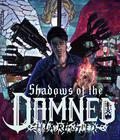
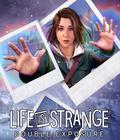


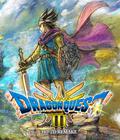
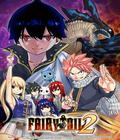


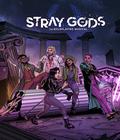 Stray Gods: The Roleplaying Musical is an interactive roleplaying musical game set in a modern fantasy world where Greek Gods live hidden among us.
Stray Gods: The Roleplaying Musical is an interactive roleplaying musical game set in a modern fantasy world where Greek Gods live hidden among us.













